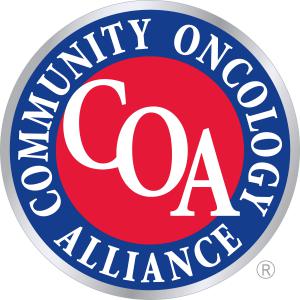COA Statement on Ongoing Drug Price Negotiations Between White House and Pharmaceutical Manufacturers
Patients and Cancer Care Providers Should Not Suffer From Election-Year Politics, Especially During a Global Pandemic
Washington, DC – August 27, 2020 – The Community Oncology Alliance (COA) is extremely concerned by news reports about ongoing drug price negotiations between the White House and pharmaceutical manufacturers proposing solutions that would upend the nation’s cancer care system in the middle of a global pandemic. Playing election politics with a fragile cancer care system as the COVID-19 (novel coronavirus) crisis is nowhere near over is simply dangerous and puts some of the most vulnerable Americans at risk.
Today, patients are still facing difficulties accessing cancer care and screenings in hospitals that are overrun battling COVID-19. Fortunately, our nation’s independent community oncology practices have gone to extraordinary lengths to keep their facilities and clinical staff COVID-19 free in order to provide uninterrupted, safe cancer care to patients during this unprecedented global crisis.
Preliminary Medicare data from an ongoing Avalere analysis of cancer care trends during the COVID-19 pandemic show up to a 70% reduction in new patient visits, a 59% reduction in established patient visits, and 75% reduction in hospital outpatient visits in April 2020. While the study is still underway, the ongoing analysis clearly paints a picture of a cancer care system that has overwhelmingly stalled in hospitals as resources have had to be diverted to COVID-19, as well as patient hesitancy to visit hospitals for cancer care due to COVID-19-related concerns.
The reported proposals being made by the pharmaceutical industry to the Trump Administration, as well as the Administration’s own ill-advised most favored nations’ demonstration gambit, would upset the fragile cancer care ecosystem and patient care as the COVID-19 pandemic rages and resurges across the country. While COA has not seen details of the proposals, what has been reported, including large-scale demonstration projects to be implemented before the elections, is simply not rational and safe to seriously consider in the midst of a national health care crisis. If implemented they could very well be the straw that breaks the camel’s back for community oncology practices who have faced down challenge after challenge over the last decade, and now are dealing with a once-in-a-century global pandemic.
Clearly, drug prices and cancer care costs are too high. We need well-thought out solutions by all stakeholders, including providers and patients, not just corporations and politicians, to these problems that address every level of the issue, rather than secretly negotiated election-year lobbying and politics. COA is completely committed to comprehensive oncology payment reform, including addressing drug payment, site of service, and other related cost drivers. We have worked closely with the Congress and Administration to propose innovative and meaningful solutions to lower the cost of cancer drugs with evidence-based medicine while controlling patient costs, as witnessed by COA’s payment reform model that includes clinically appropriate utilization management of drugs in conjunction with fundamental changes to the Medicare drug reimbursement system.
COA has been supportive of some of the drug price solutions put forth by the Administration and Congress, including efforts to fix the broken 340B Drug Pricing Program and the corrupted world of pharmacy benefit managers (PBMs) driving up drug costs with rebates. We have been leading practices in oncology payment reform that makes cancer care more affordable, including a deep commitment and involvement in the Oncology Care Model (OCM); the ongoing development of the OCM 2.0, a next-generation, more universal oncology payment model; numerous summits and meetings with payers, employers, stakeholders, and providers; and the involvement of community practices in an incredible number of private insurance payment models and programs.
Whatever solutions are proposed or negotiated, it is imperative that we do not harm Americans’ access to the latest, innovative cancer treatments, or put obstacles in the way of oncologists providing those treatments. This is particularly true as community oncology practices have bravely managed to continue providing virtually uninterrupted cancer care to patients during this unprecedented global pandemic.
As the frontline providers of care for the majority of Americans battling cancer, independent community oncologists are uniquely positioned to give insight into the impact of federal policymaking on patients, providers, and the overall health care system, and we look forward to continue working with the White House, Congress, and Federal agencies.
###
About the Community Oncology Alliance: The majority of Americans battling cancer receive treatment in the community oncology setting. Keeping patients close to their homes, families, and support networks lessens the impact of this devastating disease. Community oncology practices do this while delivering high-quality, cutting-edge cancer care at a fraction of the cost of the hospital setting. The Community Oncology Alliance (COA) advocates for community oncology and smart public policy that ensures the community cancer care system remains healthy and able to provide all Americans with access to local, quality, affordable cancer care. Learn more at www.CommunityOncology.org.
Nicolas Ferreyros COA
Community Oncology Alliance
+1 2027298147
email us here
Legal Disclaimer:
EIN Presswire provides this news content "as is" without warranty of any kind. We do not accept any responsibility or liability for the accuracy, content, images, videos, licenses, completeness, legality, or reliability of the information contained in this article. If you have any complaints or copyright issues related to this article, kindly contact the author above.

